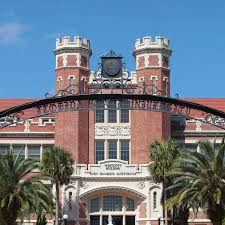Speaker
Description
Briefly after the Big Bang, the early universe was in a high temperature and high density environment. In order to recreate this state of matter in the laboratory, mini bangs are created by colliding heavy ions at the Relativistic Heavy Ion Collider (RHIC) at Brookhaven National Laboratory and subsequently at the Large Hadron Collider (LHC) at CERN. In this talk I shall be covering on the
selected results from LHC and RHIC. I shall be covering spectra and correlations (flow) and also nuclear modification factor. I shall be discussing quarkonia flow in further detail. Due to the larger mass of the bottomonium states compared to the charmonium ones,the measurement of bottomonia production in proton-nucleus collisions allows a study of CNM effects in a different kinematic
regime, therefore complementing the J/Psi studies[1]. For smaller systems like p+A and p+p we have less deeply bound bottomonia states and thus a comparatively larger chance to escape. This means that more states become measurable, which is a positive feature. On the other hand,it also means that the escape mechanism which underlies the anisotropic flow of bottomonia may become largely ineffective, in particular for the Upsilon(1S). Accordingly,the measurement of a sizable flow
for Upsilon(1S) in small systems[2] would probably hint at the importance of initial-state correlations. Our present understanding of sQGP as a very good liquid with astonishingly low viscosity will be discussed including the recent observations of QGP-like phenomena in small collision systems[3]. The understanding small systems hence becomes very important and such studies will be also stressed and presented including the opportunities which will be possible in LHC Run-3 small system data-sets.
[1] D. Das and N. Dutta, Int. J. Mod. Phys. A 33, no. 16, 1850092 (2018)
[2] D.Das , Nucl.Phys.A 1007 (2021) 122132
[3] D.Das, IJMPA Vol. 36, No. 24, 2130014 (2021)
| speaker affiliation | Saha Institute of Nuclear Physics |
|---|

